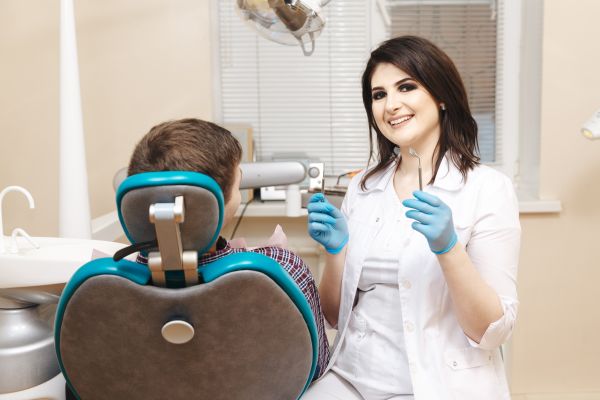What Are the Most Common Dental Sedation Methods?

Dentists use dental sedation for a variety of reasons, including to relax patients who become anxious during dental visits and also to sedate those undergoing dental procedures so that they do not feel any pain. Since sedation is used for various reasons, dentists tend to use different types of sedation on patients.
Common types of dental sedation
The most commonly used types of dental sedation used by dentists include:
Nitrous oxide
Nitrous oxide, also known as laughing gas, is commonly used to keep patients relaxed during dental procedures. This type of sedation is considered to be mild because the patient will remain conscious during the procedure. Since it is a gas, the effects wear off quickly once the patient stops inhaling it.
The gas is administered using an apparatus that is attached to the nose. The effects are felt as quickly as 30 seconds after the patient starts breathing it in. Unlike some of the other types of dental sedation, patients can drive themselves home shortly after the effects of the gas wears off.
Oral sedation
This type of sedation is administered orally because the sedative is a pill. Depending on the severity of the case, patients might have to take a pill the night before the procedure and another one an hour before the procedure. The patient will be awake during the procedure, but might not remember much after.
After the procedure is over, the patient will feel groggy for a few hours and will need to have someone drive them home. The effects of the medication will wear off within 24 hours.
IV sedation
With this type of sedation, our office uses a dental anesthesiologist or nurse anesthetist to sedate the patient using intravenously (IV) administered medications. An anesthesiologist or nurse anesthetist ensures maximum patient safety. The dentist should require the services of a nurse anesthetist for maximum patient safety.
The two types of IV sedation are:
- Twilight IV sedation: With this type of sedation, the patient will be conscious during the procedure, but totally relaxed.
- General anesthesia: This form of sedation is used when the patient has to undergo significant oral surgery or if the patient has a high tolerance for the other types of sedation. When the dentist uses general anesthesia, the patient is unconscious during the procedure and will stay that way until the anesthesiologist who administered the sedation wakes them up.
Can any dentist perform dental sedation?
Most dentists can administer sedation like nitrous oxide and oral sedation, but only dentists that have completed the Commission on Dental Accreditation program can administer deep sedation and general anesthesia.
In some cases, dentists will bring in a dentist anesthesiologist (DA) to administer general anesthesia to patients before the procedure. However, the sedation rules vary from state-to-state with some states requiring dentists to have permits to perform sedation.
How do I know if I need dental sedation?
Anybody who is avoiding dental treatment that they need because of fear is a candidate for sedation. Dental sedation will completely relax them so that they can have the dental procedures they need to maintain their oral health. Sedation is also suggested for patients requiring extensive dental treatment
Conclusion
Dental sedation makes it easier for people who have a phobia of the dentist to relax when undergoing dental procedures. If you think you will benefit from sedation during your dental visit, ask your dentist whether sedation is an option.
Request an appointment here: https://www.casasadobesdentistry.com or call Casas Adobes Dentistry at (520) 365-0559 for an appointment in our Tucson office.
Recent Posts
A dental restoration can stop the progress of dental problems from decay or injury. Dental fillings can treat mild to moderate cavities. Your dentist will assess your teeth and see how many need fillings. Here are the things to expect before you get this dental restoration.The dentist will examine the patient’s teeth and see how…
Gum disease is also known as periodontal disease. This is a condition that causes inflammation of the tissue around the patient’s teeth. It is caused by bacteria building up in the area. Keep reading to learn about some of the symptoms of gum disease.Periodontal disease is a progressive condition, meaning it gets worse over time.…
Replacing missing teeth with dentures restores much of their functionality. However, dental appliances are limited in what they can do compared to natural teeth. While you should be able to return to eating many of the foods that you enjoyed before you lost your teeth, some could cause problems for you. You should avoid eating…
Anyone who has a broken or missing tooth can benefit from dental restoration. Dental restoration fixes or replaces teeth to improve oral health or function. This is a broad dentistry category, from simple restorations such as fillings to more extensive restorations such as dental implants or dentures. Some restorations offer cosmetic benefits; however, their main…


